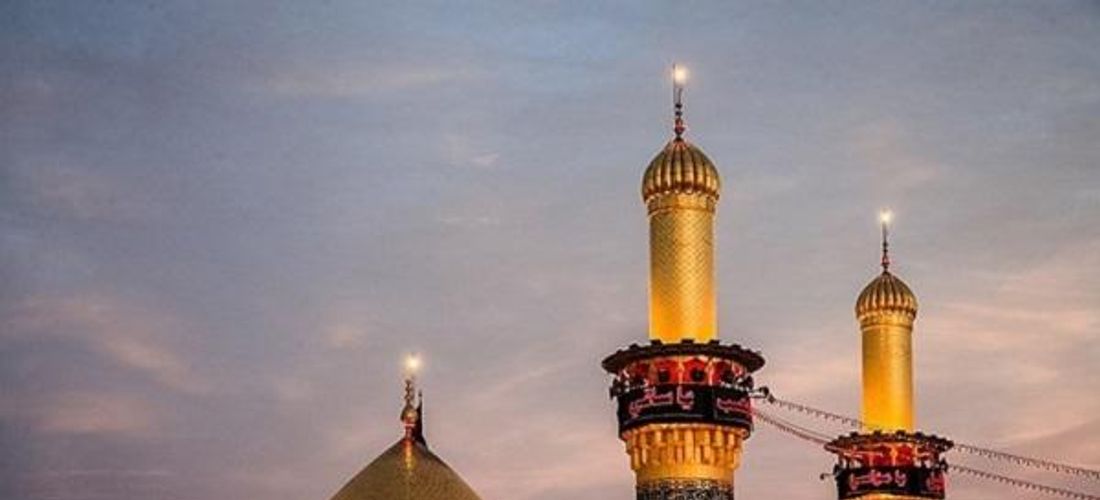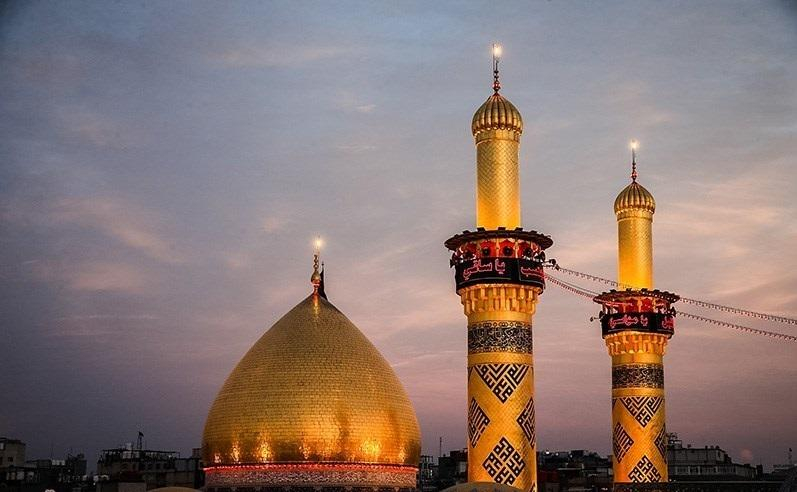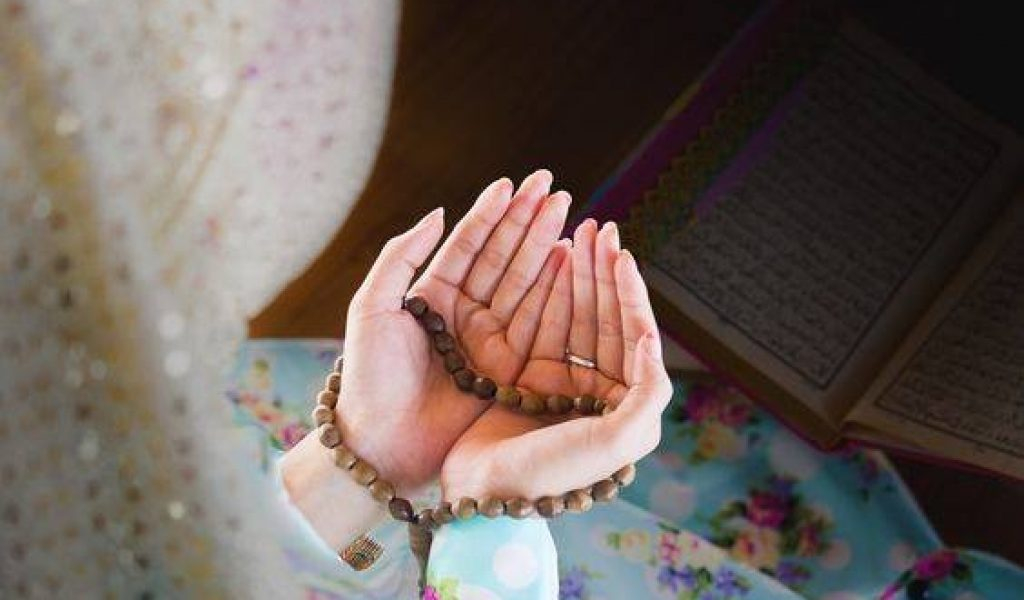An Ashura for All Muslims
Faith
|
Sep 6, 2019
|
3 MIN READ

Ashura, which falls on the 10th day of Muharram (the first month in our Muslim lunar calendar) is nearly upon us. By way of a quick history, Ashura is a significant day for all Muslims but is marked as a major religious occasion for Shi’a Muslims. It is the day (in 680 A.D.) when Imam Hussein, the grandson of the Prophet Muhammad (saw) was martyred in Karbala, which is located in modern-day Iraq.

A mosque in Karbala, Iraq.
Muslims are encouraged (but not required) to fast on the 9th of Muharram and on Ashura, as we are taught that fasting on the ninth and tenth of Muharram will bring us great rewards and is an appropriate way to mark this occasion. Fasting on the 11th of Muharram is also from the sunnah of the Prophet (saw) and encouraged. However, it is important to note that Shi'a Muslims tend to not to fast on Ashura as they observe the day as a time of mourning, as this was pointed out to me by several readers of this blog and through some research.
The Prophet Muhammad (saw) often fasted on Ashura, and the day is tied to several significant religious moments: The Prophet Nuh (peace be upon him) left the ark after the flood on this day, and the Prophet Musa (peace be upon him) was saved from Firaun and the Egyptians by God on the 10th of Muharram.
In Bukhari and Muslim from Ibn Abbas (Allah be pleased with him), it is said that he was asked about fasting the Day of Ashura. He said, “I did not see the Messenger of Allah (blessings and peace be upon him) fast a day while more avid to seek its virtue than this day [meaning the Day of Ashura]. [Bukhari (2006), and Muslim (1132)].”
For a Shi’a perspective, I found the words of Omid Safi, a professor of Islamic Studies at Duke University and author of Memories of Muhammad: Why the Prophet Matters, very interesting in his description of the Shi’a mourning ceremonies of Ashura, and the ways Shi’as should mark the day. A few years ago he gave an interview for an Iranian news agency, where he said:
The mourning ceremonies of Ashura are of course an important way in which we demonstrate our love affection for Imam Hossein, and through him, the Prophet. I am committed to the notion that identification with the redemptive suffering of the imam is a key aspect of Shi’I piety. ...Furthermore, I would add that the foremost way of honoring Imam Hossein is not by sinking into the abyss of melancholy, but rather “carving a tunnel of hope through the great mountain of despair.” What would best serve the cause of Imam Hossein and Islam is not to sit in mourning but rather to rise in protest, rise majestically like Imam Hossein against all the Yazids of the world today. The Yazids of the world are sometimes individuals every bit as devious as Shemr and Yazid of yesteryears, but more often entities and concepts like oppression, greed, occupation, militarism, brutality, violence, and every oppressive ideology that stands in the way of affirming the dignity and integrity of each and every member of humanity ... .
And in a Facebook status update he wrote several years ago, Br. Omid wrote that beyond being something just for Shi’as to mark, Ashura has significance for all:
The martyrdom of Imam Hossein ... is a reminder that there is real injustice in this world, and one has the cosmic responsibility to rise up against it. What happened “there” and then is also projected against all time and space. The question is not what Imam Hossein did in the month of Muharram of the year 680 on the plains of Karbala in Iraq, but rather what are we doing today. Every day is Ashura, Every place is Karbala.
I find his observations very interesting and spiritual, in that he takes a significant moment in Islamic history, something that led to the split of Muslims into two main sects – Sunnis and Shi’as – and reminds all Muslims that the martyrdom of Imam Hussein was a “cosmic” event, and that instead of spending our time in mourning, we should all rise in protest against the injustices that still plague this world.
Often when it comes to days and occasions that are from our Islamic history and show up yearly in our Muslim calendars, many of us wonder how we should mark the occasion. Zainab Bint Younis (aka "The Salafi Feminist," once wrote a piece in which she said:
It is Allah alone who created the months of the year and it is He alone who chooses which of those months are sacred, and which of those days are meant to be days of celebration and commemoration. In the Sunnah of RasulAllah (sallAllahu ‘alayhi wa sallam), we have ample evidence of specific examples: the month of Ramadan, the last ten nights of Ramadan, the first ten days of Dhul Hijjah (including the day of Arafah and the day of Nahr), and so on.Muharram is one of those months, but never did RasulAllah (sallAllahu ‘alayhi wa sallam) or his Companions take the first day of the ‘Islamic new year’ as something to commemorate or make special note of. Rather, it is the day of Ashuraa’ – the 10th of Muharram – that is marked as being of significant importance in Islam.
Indeed, fasting for Ashura is something that the Prophet held to great importance, as evidenced by a few hadith:
Fast the Day of Ashura, for indeed I anticipate that Allah will forgive (the sins of) the year before it.” (Tirmidhi)
And,
There are four things which the Prophet never gave up: Fasting ‘Ashura’, (fasting during) the ten days, (fasting) three days of each month, and praying two Rak’ahs before Al-Ghadah (Fajr).” (Nasa’i)

If you are fasting for Ashura (and the days before and after it), I pray that Allah (swt) accepts your fast. If you are unable to, I pray that any worship you do will be accepted and rewarded. As for us – my family will be sitting together with my father-in-law to talk about Ashura and it's historical and religious significance. In years past, when the kids were young, we would facetime with my father, who would prepare a special lesson/story on Ashura for the kids.
It was the next best thing to the nights we spent in front of our fireplace growing up in North Dakota, where we learned about Islam and all the significant days and practices at the knees of my father, before there was Sunday School, Islamic School, a plethora of readily-available Islamic books, or the Internet to supplant our knowledge.
May your ibadah (worship) be blessed and accepted by Allah (S), and may we all take time to reflect on the significance of Ashura. As Br. Omid says, "It is a reminder that there is real injustice in this world, and one has the cosmic responsibility to rise up against it."
This post is adapted from a post I wrote about Ashura for my own blog, The Muslimah Next Door – Faith, Family and Autism.
Subscribe to be the first to know about new product releases, styling ideas and more.
What products are you interested in?

